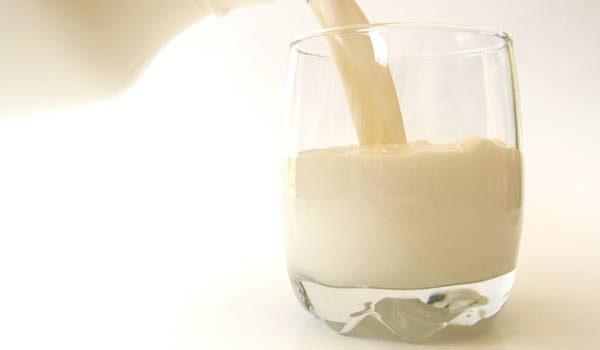4 Experts Answer: Is Milk Really Healthy for You?

Each week, MyHealthNewsDaily asks the experts to answer questions about your health.
This week, we asked nutrition experts: Is milk good or bad for you? Their answers have been edited and condensed for space.
Vandana Sheth, spokesperson for the Academy of Nutrition and Dietetics.
You want about three servings or of dairy a day, or three servings of soy milk. One serving of milk is one cup, and one cup of whole milk has 150 calories and almost eight grams of fat. That's quite a bit of fat – out of that, 5 grams are saturated fat which is not good for you.
But you can get around the saturated fat by drinking low-fat or non-fat milk. That way, you're cutting down fat and calories while still getting all of the nutrients in milk. For example if you drink eight ounces of skim milk, that's 90 calories. The fat will be minimal, and it's low in saturated fat.
Cow's milk is naturally an excellent source of calcium. It has vitamin D and it has potassium and it's a complete protein source as well. With other forms of dairy – cheese, yogurt and other sources – you are getting some, but not all, of the nutrients from milk. For example, in yogurt the water in milk is taken away so you get possibly more protein per serving. But you may also get more fat and salt. Yogurt would be a good option to replace cow's milk if you'd like, especially a non-fat greek yogurt which is lower in carbs and higher in protein.
Keith Ayoob, associate clinical professor, department of pediatrics at Albert Einstein College of Medicine:
Sign up for the Live Science daily newsletter now
Get the world’s most fascinating discoveries delivered straight to your inbox.
People seem to want to criticize cow's milk, and it is honestly stellar. There's been the issue of RBST, or bovine somatotropin, which is a hormone that is given to cows that don't produce a lot of milk. And a lot of people are worried about it, but it doesn't work on people!
Although it's not as present in the marketplace now I feel bad for the small dairy farmers. If they have more efficient cows they can stay in business.
Also, most people don't know it, but milk is actually a local food for many people. Even in New York City, we're within an hour and a half's drive of dairy farms. And milk is cheap. Even at $4 a gallon, that's 25 cents a cup, and at that rate it's still cheaper than a can of soda. Milk has nine essential nutrients, and kids like it. This one isn't broken, we don't need to fix it.
Dr. Amanda Powell, of the medicine endocrinology, diabetes and nutrition department of the Boston Medical Center:
In terms of health, cow's milk is a complete protein source. It has eight grams of protein and 12 grams of carbohydrates per cup. Cow's milk on it's own — without fortification — has 300 milligrams of calcium, which is 30 percent of the recommended daily allowance for most adults. And, one cup of milk has half of the recommended daily allowance of B12.
We also fortify cow's milk with essential nutrients. Cow's milk is typically fortified with vitamin D, and you need vitamin D to absorb calcium.
However, there's no fiber in cow's milk. And the amount of fat is variable, including saturated fat. So keep in mind there's less fat in lower-fat versions milk, such as 1 percent, skim or 2 percent milk. It also has lactose, so it can cause gastrointestinal or digestive problems for people who have a deficiency of the lactase enzyme.
Meagan Mohammadione, clinical dietitian for the Emory Bariatric Center in Atlanta
Milk is a natural product, andthe less messed-with your food is, the better it is for your body.
Cow's milk has about double the amount of protein as soy milk. They're both a good source of calcium (if it's added in soy milk), potassium, phosphorous, vitamin D and other nutrients.
Soy and cow's milk have different types of protein. The protein in cow's milk is called casein. Often, our bodies can process and use the nutrients from animals sources better than plant sources. That's not to say you can't be a vegetarian, or that soy milk is a bad option for people.
Soy milk is the best substitute out there when it comes to milk substitutes: Almond milk, rice milk, or hemp milk — I wouldn't even call them cow milk replacers. They are very low in protein.
Milk has sugar, and some people get freaked out about that. But the milk sugar lactose does not have that much of an effect on blood sugar as table sugar has.
There is also a difference between lactose intolerance and milk allergy. An actual allergy to milk is very rare, and that's when people are allergic to casein in milk. If you're allergic to it, you know it. If you're lactose intolerant you also know; your stomach hurts and you feel gassy. If someone likes milk and doesn't tolerate lactose, I'd say do lactose-free milk.
Follow MyHealthNewsDaily on Twitter @MyHealth_MHND











